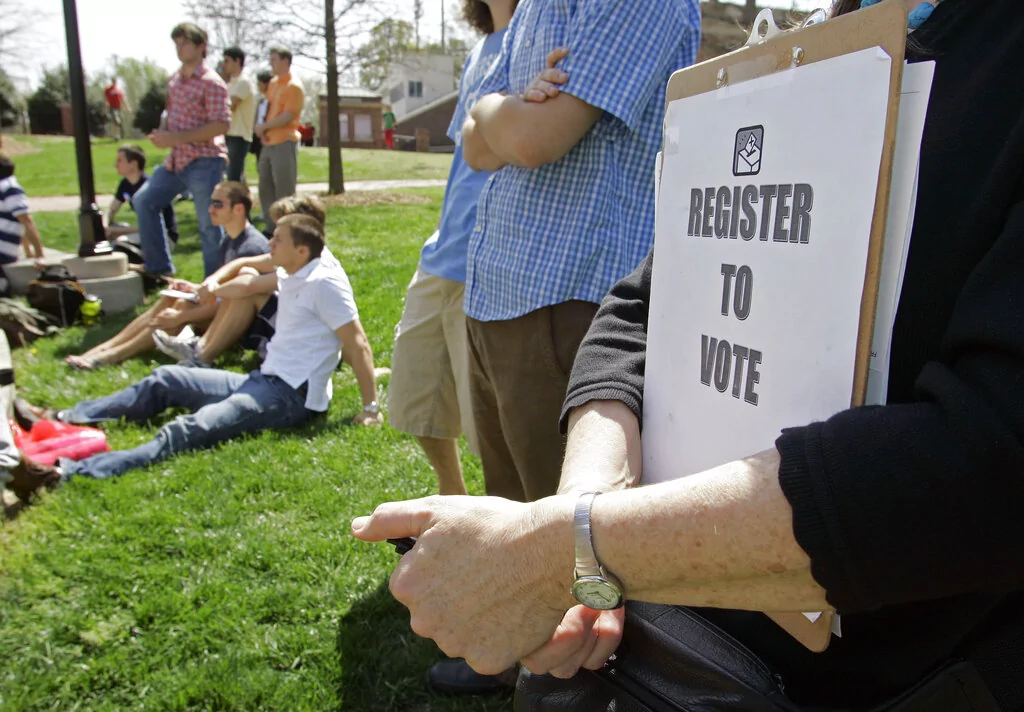

North Carolina voted blue from 1876 to 1964 before flipping red from 1968 until 2008, when Barack Obama won the state. The state went red again, with Mitt Romney winning in 2012 by 2%, followed by Donald Trump taking the state’s 16 electoral votes in the last two elections by 3.9% and 1.3% in 2020.
The Washington Examiner is following the key issues voters care about as they prepare to vote for the next president of the United States. The specific issues being tracked are social security, crime, abortion, economy, and immigration.
The issues were chosen with the help of the Associated Press issues tracker. The Washington Examiner subsequently compared five of the key issues in Google Trends on a state-by-state basis, revealing which are most important to voters in swing contests.
Here, you can track how important these various concerns are to the voters in North Carolina on a rolling 30-day basis.
Crime
Crime in North Carolina trended as the No. 1 issue for voters in the Tar Heel State. Crime rates in the state have risen significantly since 2019, yet they dropped from 2021 to 2022, according to the North Carolina State Bureau of Investigation.
After a steady increase in violent crime from 2012 to 2019, it spiked in 2020. However, between 2021 and 2022, murder dropped 11.9%, burglary fell 7.2%, and all violent crime dropped 3%. Nonetheless, 2022 showed a 7.5% growth in motor vehicle theft and a 1.1% uptick in larceny.
In 2022, the violent crime rate per 100,000 residents was 413.5, and the property crime rate was 2,118.7 per 100,000. In 2023, the state saw 33 mass shootings compared to 21 shootings in 2021. In a survey by SafeWise, 54% of people in North Carolina said they were concerned about gun violence- higher than the national average of 51%.
Social Security
Concerns over social security came in second for North Carolinians, as proposed changes to social security could negatively affect people in the state, according to the Center for American Progress. One proposal put forth by the Heritage Foundation would raise the retirement age, affecting 73% of North Carolinians- over 7,800,000 residents. Another would slash benefits from $13,000 to $8,900 after one year. Also, the median-wage retiree could lose $46,000 to $100,000 over the next 10 years.
With so much money on the line, it makes sense why many North Carolina voters would feel insecure about what might become of their social security throughout the next presidency.
Abortion
North Carolina voters have abortion as their third most concerning issue this election, and whereas the state’s legislature isn’t wholly supportive of the procedure, on July 1, 2023, North Carolina made abortion accessible up until 12 weeks of pregnancy while enforcing a mandatory 72 hour waiting period and counseling sessions. The state also requires a parent, guardian, or judge to consent to a minor’s procedure.
Administering medication abortion is allowed in-person only as mailing medication abortion is restricted in the state. Also, only licensed physicians are permitted to perform the procedure.
As of Oct. 1, 2023, abortions occurring past the 12-week limit due to an exception, such as the life of the mother, rape, or incest, can only be provided in a hospital. These exceptions have later gestational limits, with life-threatening causes having until 24 weeks to receive an abortion and rape or incest pregnancies having 20 weeks.
Immediately following the overturn of Roe v. Wade, the governor of North Carolina, Roy Cooper (D), signed an executive order barring the state’s government from participating in out-of-state investigations or legal actions in relation to abortion procedures.
Economy
Economic concerns were fourth for North Carolina voters, whose unemployment rate has been similar to the national average, currently 3.7%, since before the pandemic, according to the Bureaus of Labor Statistics and Economic Analysis. The rate in the state as of Nov. 2023 was 3.5%.
The state’s gross domestic product summed up to $771.1 billion in goods and services last year, with a growth rate of 4.6%. The state ranks 29th in unemployment and 31st in economic growth.
The industry that saw the most growth in 2023 was retail trade, with an improvement rate of 26.6%. Real estate grew by 2.8%, but the government industry fell by 2.2%, and wholesale trade went down 3.9%.
Yet, North Carolina’s economy contributes a significant amount to the U.S. economy, accounting for 2.8% in 2023 and ranking 11th in economic size.
Immigration
Immigration came in last for voter searches. In North Carolina, 8.6% of its population is immigrants, equating to just under a million people, according to the American Immigration Council. Of the total workforce, immigrants make up 11.1% of it, and 14.1% of the state’s entrepreneurs are immigrants. They make up 17.2% of North Carolina’s STEM workers and almost 8% of nurses.
The top countries of origin for North Carolina immigrants are Mexico, India, Honduras, El Salvador and Vietnam. Of the 74,200 immigrant entrepreneurs, the total business income was $1.6 billion. There was $9.8 billion paid in immigrants’ taxes and they had $28.5 billion in spending power.
CLICK HERE TO READ MORE FROM THE WASHINGTON EXAMINER
Immigrants are more likely to have a graduate degree than U.S.-born residents, but less likely to have a bachelor’s degree. There are 23,488 international students throughout the state, with a mass economic contribution of $816.1 million.
Throughout the state, 43.8% of all immigrants are naturalized U.S. citizens, while 34.2% are undocumented. There are 138,200 immigrants eligible for naturalization.





